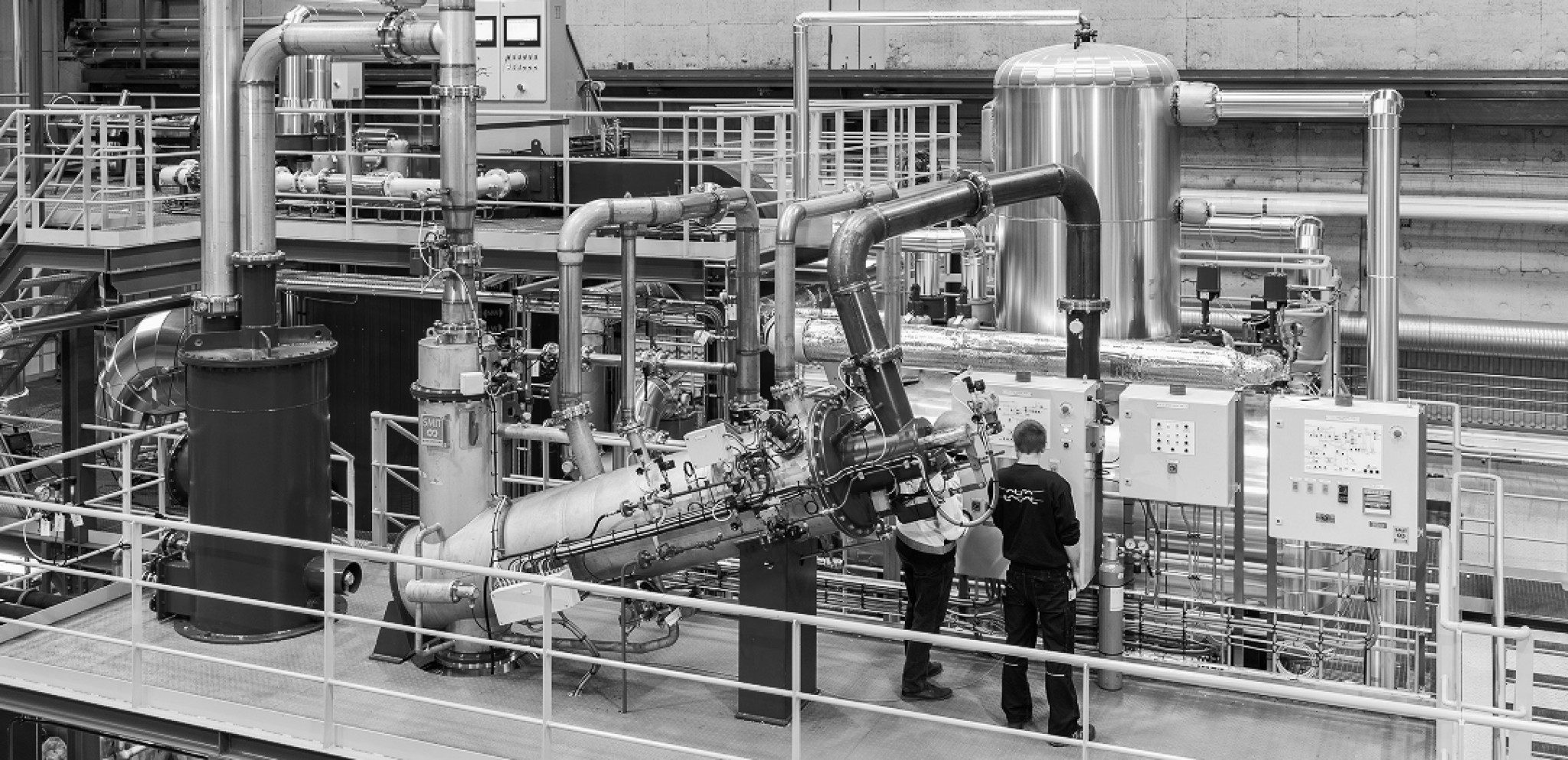Case: Alfa Laval
From high levels of capital tied up in inventory to optimized processes and common guidelines
“Now we have a common language, and everyone knows what we’re talking about. Not just in one department, but through the whole organization.”
– Interview with Supply Chain Project Manager at Alfa Laval, Martin Briand
Highlights
The challenge
With approximately 60 factories worldwide, Alfa Laval has experienced many ways of running the supply chain. The result was, among other things, obsolescence, longer delivery times, and too much working capital.
Alfa Laval’s overall need was to standardize how the factories planned and managed their raw material and finished goods inventories and reduce excess inventory.
The solution
Alfa Laval’s solution to the problem encompasses both technical and human aspects.
The platform consists of Insights and Actions: Inact Now collects, analyzes and enriches all relevant data from Alfa Laval’s ERP system and generates specific action points for employees.
Additionally, Alfa Laval has collaborated with the consultants at Inact during both the initial start-up phase and on an ongoing basis. This partnership has allowed Alfa Laval to receive continuous feedback on evolving parameters and employee behavior, notified by the platform.
The result
Alfa Laval has gone from running the supply chain on individual processes without a common data structure to using streamlined processes and data-optimized standards.
Today, employees can easily translate data into tangible actions, enabling them to actively reduce inventory and avoid capital being unnecessarily tied up. For instance, one of the factories has successfully reduced its inventory by 25%.
Inact has raised awareness and created a common language across the organization and is today integrated into Sales & Operations Planning (S&OP) at Alfa Laval.

Planning in many different ways
A classic challenge
The ability to develop new technologies, i.e., R&D (Research and Development), has made Alfa Laval a global company, selling to over 100 different countries today.
The growth has resulted in numerous factories spread worldwide, and over time, many different ways of purchasing, sourcing and calculating planning parameters emerged.
Specifically, this meant many ways of doing things on a day-to-day basis, making it frustrating and time-consuming to make improvements.
“If I’m going to improve on just three different processes, I have to do it in many different ways to get everyone on board."
Martin Briand
Supply Chain Project Manager
With factories around the world, there was a need to standardize the planning and management of raw and finished goods inventories.”
Symptoms and challenges
But is running the supply chain in different ways even a problem?
The short answer is yes, and Martin experienced eight symptoms of the problem:
-
Low turnover rate (Inventory Days of Supply – IDS), indicating excess stock
-
Obsolescence, when goods can no longer be sold or have lost value
-
Longer delivery time for customers
-
Lack of focus and overview of inventory/capital tied up
-
Poor or inadequate processes and policies
-
Lack of standardization and alignment
-
Too many Excel sheets in the operations
“The customer must be satisfied”
The factories did not have enough insight into the data, so decisions were based on the desire to satisfy the customer, which is neither abnormal nor wrong, but the basis was not optimal.
Even when Alfa Laval tried to make informed decisions by analyzing data from an ERP system and adjusting, for example, planning parameters, it was not optimal.
The problem was that all the work was done in Excel with homemade formulas, resulting in unstable data and yet another process that was open to interpretation at the factories.
Supply chain = not a core competence
Alfa Laval has a proud tradition of product development of new technologies but supply chain planning (purchasing, production and inventory management) is not a core competence.
“You don’t plan incorrectly on purpose, but without the necessary competence, mistakes happen.”
Martin Briand
Supply Chain Project Manager
Martin emphasizes that working with data and the supply chain is at least as much about people because valid data is meaningless if you don’t know what to do with it.
Alfa Laval created a Digital Supply Chain Office in 2021 to manage digital and supply chain-related projects across the factories. The aim is to support factories to digitize their processes and gain the benefits of supply chain best practices.

Alfa Laval's goals
Once Alfa Laval understood the problem, it was time to define some goals and decide what they wanted to achieve. The company formulated three main goals:
-
Better control over inventory
-
Standardization of processes and policies
-
Increased competence level
Alfa Laval translated better inventory control into the measurable KPI Inventory Days of Supply (IDS), which is an expression of the turnover rate in order to:
-
Get an overview of the turnover rate of raw material and finished goods inventories.
-
Increase the turnover rate without compromising the delivery performance to customers.
-
To reduce the inventory value.
Furthermore, it was important for Alfa Laval to involve people and create real change in the factories. And for Martin, Inact Now was not just a quick-fix digitalization project.
It was about changing behavior and common guidelines.
The link between insights and actions was why Alfa Laval chose Inact as their partner. The Inact Now platform provides a better overview and insight into the factories’ inventories and is an educational tool that translates KPIs into action.
“Inact Now is simple, and it’s easy to use as a user, not just as a superuser.”
Martin Briand
Supply Chain Project Manager
With Inact Now, Alfa Laval has not just got a piece of software, but a loyal partner that is ready with advice, business reviews and ongoing customization.
The solution for Alfa Laval consists of three parts:
Insights that provide a visual overview
The Inact Now platform collects, analyzes and enriches all relevant data from Alfa Laval’s ERP system and creates a daily visual overview of various parameters, such as picking patterns, stock levels and turnover rate.
Instead of a large whiteboard overflowing with KPIs and bar charts that are difficult to decipher, it is cut to the bone.
“Before Inact Now, we could extract data, but it was hopelessly difficult to visualize.”
Martin Briand
Supply Chain Project Manager
The visual overview in the dashboard is simple, user-friendly and makes it easy to decode what the different data means.
In addition to visualizing “as is”, Inact Now analyzes each item number and suggests a more correct setup of the parameters in the ERP system based on fresh data.
Execution with specific and tangible action points
Analysis without action is a waste of time, and all too often employees drown in general reporting of key figures, where it is not clear to the individual employee what to do.
That’s why Inact Now monitors all Alfa Laval’s SKUs daily and highlights those that conflict with the parameters and policies they have set up.
It could be a safety stock that needs to be removed or an order size that needs to be increased.
Alfa Laval also uses Inact Now as a conversation and dialog tool, so they have a visual overview at weekly meetings, for example, so they can quickly act on an informed basis.
More than system and support
Although Martin speaks highly of the support that has shown him how to create a dashboard easily, he does not emphasize this as the most important thing. For Alfa Laval, Inact is more than a system and support.
“When we meet, it’s positive that you are responsive to my requests for changes in the system or general discussion.”
Martin Briand
Supply Chain Project Manager
The partnership with Inact Now is an integral part of the solution for Alfa Laval. Martin describes Inact as a partner who, with its extensive network and experience, can advise on specific challenges and share best practices from others in the industry.
Human and CFO-friendly results
Martin highlights two measurable results in particular that were directly visible on the bottom line:
25% inventory reduction
When one of the factories implemented Inact Now, they started working actively with the actions that provided specific suggestions for action.
Specifically, the factory adjusted three parameters:
-
Minimum Order Quantity (MOQ)
-
Safety stock
-
Deadstock and scraping
And this is how the factory reduced the inventory value by 25% and increased the turnover rate – all based on visual data.
The icing on the cake: better collaboration and a common language
Meetings you actually look forward to
For Alfa Laval, Inact Now has evolved beyond just a daily KPI and execution tool. It has provided the company with full insight and transparency, enabling them to foster stronger connections across departments, factories, and management levels. In doing so, Alfa Laval has effectively dismantled the troublesome silos that once hindered collaboration and performance.
Martin says he now has the best meetings with Sourcing about Minimum Quantity Order (MOQ) because they are based on policies and a common language created through visualization in Inact Now.
A bridge across the organization
The platform also highlighted a lack of focus on end-of-life management, which has helped bridge the gap between Operations, Sales, and Product Management. This shared understanding has led to Sales & Operations Planning (S&OP) driven by the Digital Supply Chain Office, seamlessly integrating efforts across factories and product groups.
Yes, that’s many stakeholders to manage. Without the prior analysis, transparency, standardization, and digitalization, coordinating with such a diverse group would have been nearly impossible.
But for Alfa Laval, it is possible. With Inact Now.

Some good advice from Martin
Martin would like to give three final tips for those who want to work on modernizing and digitizing their supply chain functions, for example, in collaboration with Inact:
Get top management on board
This is crucial because it is a cost to optimize your supply chain, which is why Martin recommends showing management how much the business can save by working with inventory.
“Inventory numbers are fairly easy to work with. Here, you have specific numbers that show how much you save in the business if you reduce inventory.”
Martin Briand
Supply Chain Project Manager
Training, training, training
Imagine being handed a knitting needle and a sweater pattern if you have never knitted before. How motivated would you be? Our guess is “not very much”.
The same goes for tools like Inact Now. Martin emphasizes that it is essential to prioritize education and training as a foundation – a basic knowledge of the supply chain so that employees understand the different concepts. Otherwise, employees are left with a tool they cannot use.
Get employees on board
Alfa Laval has leveraged data and Inact Now to create shared insights and transparency, ensuring that each buyer and planner understands the ‘why’ behind every decision. This common understanding is essential for driving initiatives that are not only effective in daily operations but also resonate on the shop floor.
Therefore, Martin emphasizes that employees must understand how the different parameters affect the inventory, what they need to be aware of, and not least, that the above is in line with the overall goal for turnover rate.
It becomes difficult if employees don’t understand why they need to change their behavior.
Martin adds that it was actually not difficult to get employees on board:
“We haven’t had any problems with that because Inact Now is so visual and educational.”
Martin Briand
Supply Chain Project Manager
Martin has also found that many people get scared when they have to decode heavy data. With Inact Now, the heavy lifting is done for them, and they can go straight to execution because they already have the insight and understand the data.
About the case
You probably know Alfa Laval by name, but what exactly do they do?
Alfa Laval has around 60 factories globally and is one of the world’s largest suppliers of products primarily to the energy, environmental, food and marine industries. Alfa Laval is a world leader in three key technologies:
-
Heat transfer
-
Separation
-
Fluid handling
Under the three technologies, hundreds of different products are produced in different factories globally.
Meet Martin from Alfa Laval
In this case, you meet Martin Briand, who is Supply Chain & Operations Project Manager within the product categories Separators and Decanters. In practice, this means that he is responsible for developing, standardizing and optimizing purchasing, production and planning at Alfa Laval’s factories.
About Alfa Laval
Alfa Laval is a leading global supplier of heat transfer, separation and fluid handling products and solutions. Their products and services help improve efficiency, productivity and sustainability in a range of industries, including the energy, environmental, food and marine industries.
Alfa Laval develops and supplies technologies used to heat, cool, separate and transport fluids and works to solve complex challenges for their customers worldwide. Alfa Laval employs more than 21,000 people and had a turnover of DKK 42.4 billion in 2023.
Ready to take your supply chain to the next level?
Book a demo and see how we can help translate the company's strategy into daily action and make it possible to make faster, smarter, and more profitable decisions.
The solution is for you if you:
-
Want to prioritize customers, products, and suppliers based on actual business value
-
Want to connect strategy and operations so decisions support the core business
-
Need insight and overview so you can make better and faster decisions